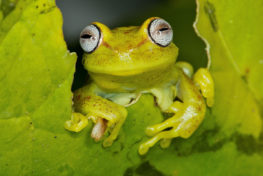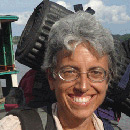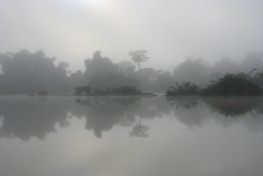

ABOUT THE WRITER
Follow @barbara_fraser
Barbara Fraser has lived for more than two decades in Peru, where her work as a freelance journalist has taken her from the desert coast to the foot of Andean glaciers to native communities in the Amazon basin. She has a bachelor's degree in communications and a Master's in environmental studies and specializes in reporting on environmental, public health, indigenous and social issues.
BY THIS WRITER
News
- 6 Jan 2015
Calculating economic value of forests often overlooks biodiversity, study finds
How should we value pristine forests far from large human populations?
Event Coverage
- 17 Dec 2014
With climate effects looming, land-use planners reach for their toolbox
Experts discussed a range of technical and social responses at the Global Landscapes Forum in Lima.
Event Coverage
- 17 Dec 2014
Land tenure in forests a matter of food security, experts contend
Research in Africa indicates the benefits of tree cover for local communities' nutrition.
Event Coverage
- 15 Dec 2014
Small farmers in Peru build climate resilience with innovation, ‘living lab’
“Local capacity to innovate is really crucial for resilience,” says representative of International Institute for Environment and Development.
News
- 15 Dec 2014
Who’s actually implementing landscape approaches? Study seeks to find out
Despite growing support for the landscape approach, relatively few case studies have been documented.
Event Coverage
- 14 Dec 2014
Indigenous land rights take center stage in Lima
Cándido Mezúa Salazar urges greater respect for the role of indigenous communities during the Global Landscapes Forum.
Event Coverage
- 12 Dec 2014
Global change, climate change upend livelihoods, food security in the Amazon
Expert: “Shifting cultivation is the only agricultural system with proven long-term compatibility with the rainforest.”
Event Coverage
- 11 Dec 2014
Traditional herders face uncertain future, forum hears
“Indigenous people have a special relationship with the land and with their territory that is important for their physical and cultural survival.”







